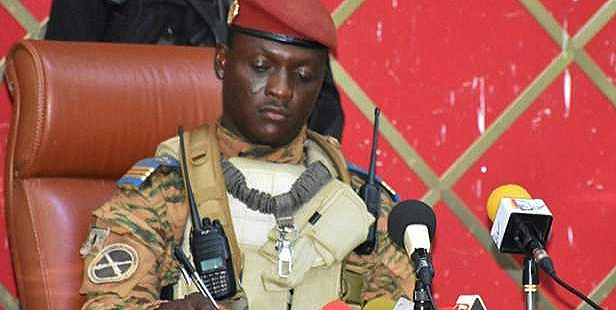Burkina Faso’s military government says it has disrupted a plot to overthrow its leader, Captain Ibrahim Traoré. Officials claim the plan was organized from Ivory Coast, the country next door.
The security minister, Mahamadou Sana, said the plot involved current and former soldiers working with “terrorist groups.” Their goal was to attack government buildings in the capital last week.
Sana explained on national TV that the plotters wanted to “throw the country into chaos and let foreign powers take control.” This is the latest in a string of alleged attempts to remove Traoré, who took power in 2022 during growing violence by armed groups.
Burkina Faso has been struggling with attacks by jihadist fighters. Experts say these groups now control about 40% of the country. Despite promises of better security and new military deals with Russia, the violence has not stopped.
Officials say the coup plotters tried to get religious and community leaders to help turn army officers against the government. They also reportedly planned to use terrorist attacks to stir up public anger against the leaders.
“The manoeuvre was to culminate, according to the terrorist plotters’ plan, on Wednesday 16 April, 2025 in an assault on the presidency of (Burkina) Faso by a group of soldiers recruited by the nation’s enemies,” he said.
The government says two former army officers living in Ivory Coast were behind the plan. They are accused of sharing secret information with militants to increase attacks on soldiers and civilians.
Last week, several military officers were arrested for allegedly trying to weaken the government. So far, Ivory Coast has not responded to the accusations that it helped the plotters.
This is not the first time Burkina Faso has reported a coup attempt. Last November, officials said they stopped a similar plan to overthrow the government.
Burkina Faso, along with Mali and Niger, has broken away from the West African group ECOWAS. The three countries have also cut ties with France, their former colonial ruler, and turned to Russia for military support. Despite these changes, security in the region remains unstable.


































